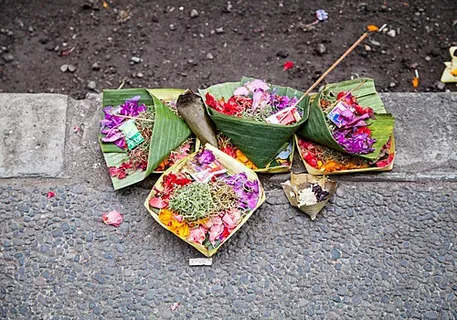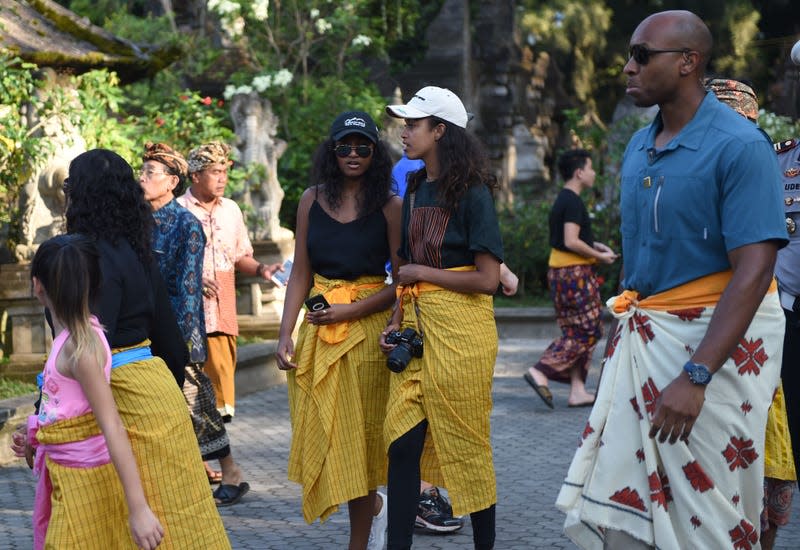When traveling to another part of the world, it is crucial to familiarize yourself with the customs, traditions, and etiquette of your destination. Bali is no exception. On the contrary, respecting local traditions is especially important here. The Balinese are warm and hospitable, but their deeply rooted religious customs demand a high degree of respect. By following a few simple guidelines, your trip to Bali will become even more enjoyable and culturally enriching.

Basics of Etiquette in Bali
The Balinese practice a unique form of Hinduism, Agama Hindu Dharma, which deeply influences their daily lives. This cultural and religious foundation gives rise to many rules of etiquette, especially outside the main tourist areas. Understanding and following these customs shows respect and builds positive connections with the local community.
1. Sacred Nature of the Head
The head is considered sacred in Balinese culture, as it symbolizes the soul. Never touch someone's head, whether it’s an adult or a child. This is seen as deeply disrespectful.
2. Feet and Footwear
In contrast, feet are considered the lowest part of the body, symbolizing impurity. Always remove your shoes before entering homes or certain shops (you’ll usually see shoes at the entrance as a sign). Avoid pointing the soles of your feet towards others or objects of reverence, such as altars.
3. Right Hand Norms
In Bali, the left hand is considered unclean. Use your right hand for greetings, passing items, eating, or paying. If using both hands is necessary, that’s acceptable. Although locals understand that tourists may not know this custom, following it will earn you respect.
4. Avoid Offensive Gestures
Crossing your legs, pointing at someone with your finger, or placing your hands on your hips are considered impolite or aggressive gestures. Be mindful of your body language.
5. Public Displays of Emotion
The Balinese avoid showing anger, irritation, or affection in public. Such displays are seen as inappropriate and disrespectful.
6. Clothing
Modest clothing is expected, especially near religious sites and in rural areas. While casual attire is acceptable in tourist hubs like Kuta and Seminyak, wearing revealing outfits in less touristy areas like Ubud can be seen as disrespectful.
7. Offerings

Small baskets made of palm leaves, filled with rice, coins, or sweets, are common around Bali as offerings to deities or spirits. Never step over or on them, as this is deeply offensive. Offerings for gods are placed high, while those for spirits are set on the ground.
8. Beach Dress Code
Swimwear is appropriate only at the beach or by the pool. Walking in a swimsuit in public areas is frowned upon, and nudism is strictly prohibited by law.

9. Expressing Gratitude
When expressing gratitude, bring your palms together in front of your chest in a "namaste" gesture and nod slightly. Learning a few Balinese phrases like "om swastiastu" (hello), "suksma" (thank you), and "permisi" (excuse me) will go a long way in showing respect and building goodwill.
Basics of Etiquette in Temples
.jpg)
Temples are central to Balinese culture and religion, and showing respect is essential when visiting them.
1. Dress Code
Both men and women must wear a sarong to cover their legs when entering a temple. Tank tops should be replaced with T-shirts to cover the shoulders. Pants or shorts should not be visible under the sarong.

2. Restrictions for Women
Women should not enter temples during menstruation or with any open wounds, as this is considered to violate the purity of the sacred space.
3. Silence and Photography
Maintain silence during temple visits, especially during rituals. Always ask permission before taking photos to avoid offending the locals.
4. Respect for Worship
Avoid standing near or interrupting worshippers during prayers. Religion holds immense importance for the Balinese, and disrupting ceremonies is seen as highly disrespectful.
5. Sitting Position

When sitting in a temple, ensure that your feet are not pointing towards the altar. Instead, sit cross-legged or tuck your legs under your body, as per local customs.
Conclusion

Bali’s unique culture and customs are what make it such a magical destination. By respecting local traditions and etiquette, you not only enrich your experience but also show gratitude for the Balinese hospitality that makes the island unforgettable. Many visitors love Bali not only for its surfing and natural beauty but also for its rich culture and individuality. Embracing these customs will help you become a part of this beautiful culture and leave with even greater respect for the island and its people.
You can add one right now!